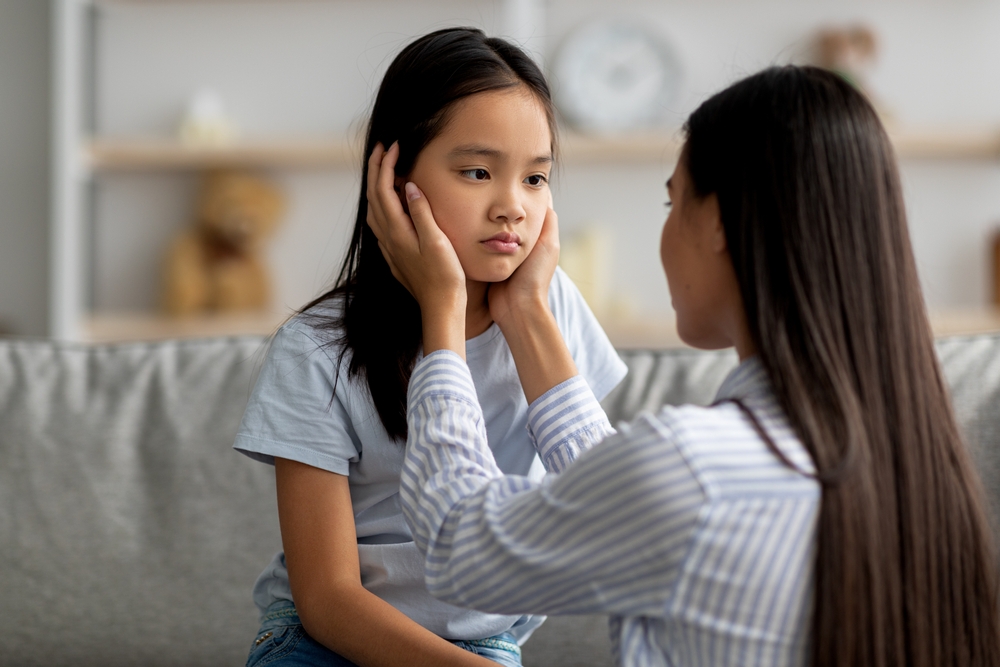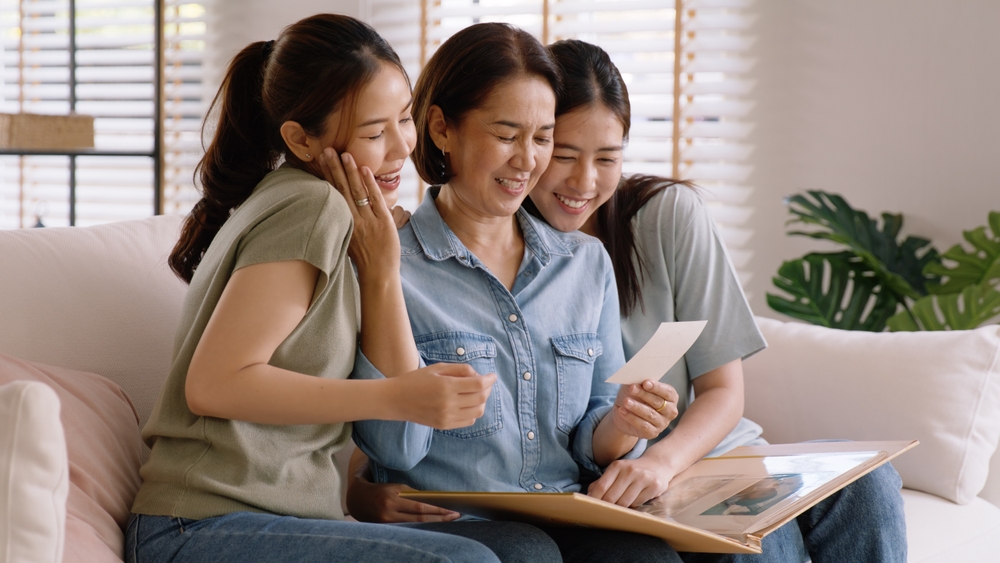Experts Say Aunts Play Just as Vital a Role as Mothers in Raising Daughters, This Is How

What if the secret to raising confident, resilient daughters isn’t found only in the bond between mother and child? Around the world, stories and science alike are pointing to a surprising truth: aunts may be just as crucial in shaping the next generation of women. From the aunt who bakes birthday cakes every year to the one who listens quietly during a teenager’s first heartbreak, these figures are more than relatives on the sidelines. They are lifelines, role models, and sometimes the difference between a girl crumbling under pressure or growing through it. Research suggests that even one nurturing adult outside of the immediate household can change the trajectory of a child’s life, and for girls, aunts often fill that role.
Why Aunts Matter More Than We Think
Psychologist and parenting author Steve Biddulph, known for Raising Girls and 10 Things Girls Need Most, has long argued that aunts serve as “pillars of mental health” for girls. Speaking on ABC’s Parental as Anything podcast, he explained that young women often go through phases where they resist guidance from their mothers but still crave support. This is where an aunt steps in.
According to Biddulph, aunts provide a vital balance: they are close enough to care deeply, but distant enough to offer perspective without the tension that often comes with the parent-child relationship. This unique position allows them to be sounding boards, mentors, and safe havens. They create a space where girls can explore their identity without fear of criticism, something that is often invaluable during adolescence.
The Modern Challenges Young Women Face

Girls today are navigating a world unlike any generation before them. The rise of social media, heightened academic and social pressures, and the ever-present issue of sexualisation mean that adolescence is increasingly complex. According to the World Health Organization, more than one in five adolescents globally suffer from a mental health disorder, with girls disproportionately represented in conditions such as anxiety and self-harm. These pressures demand a broader network of emotional support.
Biddulph and parenting educator Maggie Dent both stress that a mother’s love, as powerful as it is, isn’t always enough to carry daughters through these turbulent waters. Girls face constant exposure to online comparison, pressure to perform in school, and the confusion of navigating relationships at an earlier age than ever before. Without extra guidance, they may default to peer groups, which are often ill-equipped to provide healthy advice. This is why the extended family structure, and especially the presence of a caring aunt, becomes so essential.
Building Bonds Early: The Foundation of Trust

Experts encourage aunt-niece relationships to be nurtured from an early age, well before teenage years bring greater challenges. Shared birthdays, camping trips, or even small traditions like baking together can lay the groundwork for trust and safety. These moments create a bond that later becomes a lifeline when a young woman faces heartbreak, academic stress, or social challenges.
Even long-distance aunts aren’t excluded from this role. Letters, video calls, and small tokens of shared interests, whether that’s a postcard or a silly meme, can keep the connection strong. The key lies in showing consistent interest and presence. It isn’t about grand gestures, but about the reliability of being there.
Research from Harvard’s Center on the Developing Child shows that when young people have at least one stable, supportive relationship with a caring adult, they are far more likely to develop resilience. For many girls, their aunt becomes that consistent adult presence, building a sense of safety that allows them to navigate life with more confidence.
Unconditional Positive Regard: Listening Without Judgement

One of the most powerful gifts an aunt can offer is something psychologists call “unconditional positive regard.” Unlike a parent, whose guidance can sometimes feel heavy with expectation, an aunt can simply listen and affirm without the pressure of approval or correction. This makes a niece feel truly “seen” and “heard,” something especially crucial during the emotionally intense teenage years.
Madonna King, author of Being 14, observed that many teenage girls feel parents don’t listen, often because parents are preoccupied or quick to judge. Aunts can fill that gap, offering space for real conversations without fear of being dismissed. The impact of this is enormous: it strengthens self-worth, builds confidence, and teaches girls the value of empathy and authentic connection.
A 2019 survey by Girlguiding UK revealed that 39 percent of girls aged 11 to 21 feel pressured to appear perfect on social media, despite knowing those images are filtered. Having an aunt to counteract those pressures with authenticity and understanding can act as a protective shield. Sometimes just having someone who says, “I hear you” or “I’ve felt that too” is enough to stop a downward spiral.
Being Real Role Models in an Image-Obsessed World

In today’s culture of filters and carefully curated online personas, young women are bombarded with unrealistic expectations. Here, too, aunts play an underrated role. By being authentic, showing imperfections, sharing struggles, and being at ease in their own skin, aunts model what it looks like to live confidently and honestly.
Biddulph and Dent argue that aunts expand the vision of what it means to be a woman. Instead of girls looking only to peers or influencers, they gain a living example of how to balance self-acceptance, resilience, and joy. Whether that comes through attending a niece’s first musical, talking openly about relationships, or showing vulnerability during tough times, the role of an aunt is about being real rather than perfect.
Research published in the Journal of Early Adolescence highlights that young people with non-parental role models are significantly more likely to report higher self-esteem and stronger aspirations for their future. For many girls, aunts embody those crucial role models. They provide an alternative voice, reminding nieces that worth isn’t measured in likes or followers but in character and courage.
How Aunts Can Actively Support Their Nieces

While every relationship is unique, experts outline several practical ways aunts can step into their role with impact:
- Start early: Join in on family traditions, birthdays, or shared hobbies to build trust.
- Stay consistent: Regular calls, meetups, or even small gestures keep the bond alive.
- Be available: When tough times hit, whether heartbreak, stress, or grief, being present matters more than fixing the problem.
- Model authenticity: Show that imperfection is not failure, but humanity.
- Ask the deeper questions: Conversations about identity, dreams, and relationships are often easier with an aunt than with a parent.
Some experts even recommend monthly one-on-one time between aunts and nieces, whether it’s a lunch, a walk in the park, or a day out together. These small investments of time create big dividends in trust and openness.
Aunts by Bond, Not Just by Blood

Importantly, “aunt” doesn’t need to mean biological family. A beloved teacher, a close family friend, or a trusted neighbour can all become aunt-like figures. As Biddulph notes, what matters is the genuine love and care these women bring. Often, these chosen aunties become just as integral, sometimes more so, than relatives.
This expanded view of family reflects how humans are wired to survive and thrive: not through isolated nuclear households, but through networks of care. Anthropologists note that in many traditional societies, child-rearing was never the sole job of parents but a shared responsibility among extended kin and community. In this sense, the role of an aunt is both ancient and deeply human.
A Reflection: Why This Matters for All of Us
The recognition of aunts as essential figures isn’t just about celebrating one family role. It’s a reminder that raising strong, resilient, and confident young women requires community. In a world where girls face unprecedented pressures, no single parent should be expected to carry the load alone.
For readers, the takeaway is clear: whether you’re a biological aunt, an honorary one, or a parent inviting trusted women into your daughter’s life, these connections can be life-changing. In a society obsessed with independence, perhaps the real strength lies in interdependence, in showing up for each other across the bonds of family and friendship.
Aunts may never replace mothers, but they don’t have to. Their power lies in being something different yet equally vital: the listener, the encourager, the steady presence in the wings. And for every daughter learning to navigate the world, that presence may make all the difference.
Loading...

